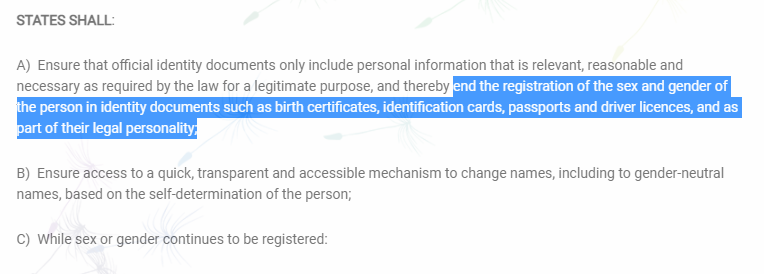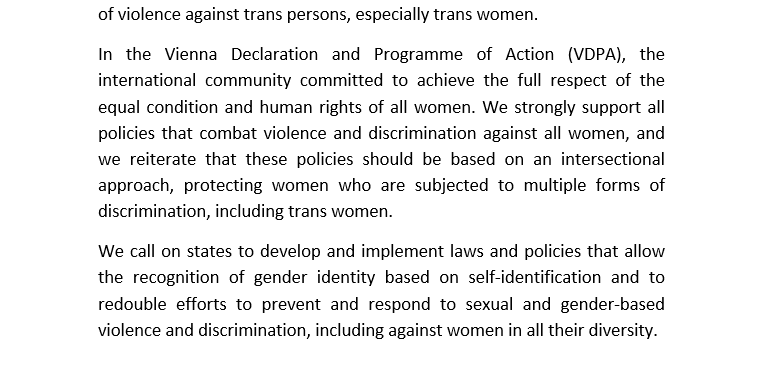1.We welcome the review/investigation into #Mermaids by the @TNLComFund & @ChtyCommission. There is evidence suggesting funding was previously awarded to them based partly on falsehoods relating to the Yogyakarta Principles (YP). #MermaidsInvestigation
yogyakartaprinciples.org/principles-en/…
yogyakartaprinciples.org/principles-en/…
2. In 2019 a report was produced by TNLCF's Director for Scotland to assist in a review of the decision to award £500K over five years to #Mermaids after concerns were raised. The report claims that YP are legally binding & that all states must comply.
tnlcommunityfund.org.uk/media/document…

tnlcommunityfund.org.uk/media/document…


3. The YP are non-binding as confirmed by the UK Supreme Court. They do not represent 'international best practice'. They promote highly contested ideas such as making sex self ID the law & abolishing references to sex on a newborn child's birth certificate. 

4. The YP is the wish list of a small but powerful group of individuals. Robert Wintemute, a signatory turned critic of the YP, provided a written submission to the Scottish government who recently published a report relating to proposed legal reform concerning sex self ID. 



5. Although this report correctly refers to the YP as 'non-binding' it is alarming to see that the radical proposals contained in them are still being supported by the Scot. govt. & their human rights institution. @ForWomenScot @EHRCChair @akuareindorf @SuellaBraverman
6. Evidence suggests recent Trustee of #Mermaids Jacob Breslow is also supportive of the idea of abolishing the registration of sex on birth certificates. In 2019 he Chaired an event at the LSE called "What if the state no longer sexed us". #MermaidsOut
lse.ac.uk/gender/events/…

lse.ac.uk/gender/events/…


7. More information on Jacob Breslow can be found here. @ReduxxMag #MermaidsOut
reduxx.info/resigned-trans…
reduxx.info/resigned-trans…
8. There is evidence of lobbying for the abolition of the registration of sex & there is also evidence of promotion of the "abolition of childhood" in academia. Can we expect further links to arise between the two? @4WPub #MermaidsOut
4w.pub/childhood-stud…
4w.pub/childhood-stud…
9. In 2016 Jacob Breslow was invited to speak at an event organised by registered charity the British Sociological Association called "What Next for Child Studies? Pushing Boundaries". @ChtyCommission should @britsoci also be under investigation?
ed.ac.uk/files/atoms/fi…

ed.ac.uk/files/atoms/fi…


• • •
Missing some Tweet in this thread? You can try to
force a refresh








